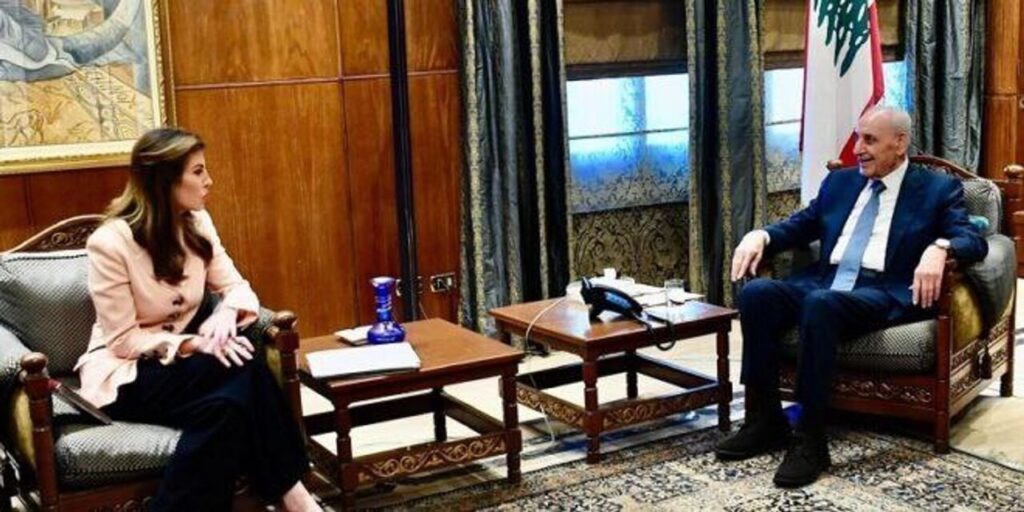Beirut – A detailed discussion of Morgan Ortags, the Deputy U.S. envoy of the Middle East, during his unfortunate three-day visit to Beirut, forced an emergency meeting related to Lebanon’s executive secretary and director of legislative power, particularly the completion of the implementation of UN Resolution 1701.
The meeting, which brought together Republic President Joseph Orn and chairman of Parliament Navi Beli, will be addressed in particular a series of legal amendments to banks (particularly banks) before embarking on negotiations with the International Monetary Fund or other international financial institutions (whether it is the source of a loan or grant).
Therefore, the discussion focused on the background of the so-called reform laws dealt with by Ortagus. She spoke on behalf of the international community and donor institutions.
Trump’s envoy complained about what she deemed a slow process, but said Lebanon should first work on unsecreting the bank (with a retrospective effect of 10, not the three years proposed by the Lebanese government).
She also requested disclosures of operations, including opaque poles that took place between 2015 and 2019.
The second item that Ortagus looms is a restructuring of the banking sector, consistent with the global banking system, claiming Lebanon is dependent on the cash economy, making it a great shelter for money laundering and avoiding international financial regulatory filters.
In addition to the above, Ortagus has set up additional emergency items related to judicial reform, border crossings and customs management, and Ministry of Finance cleaning.
In a television interview, Ortagus, as she said, discussed the fate of all “illegal” weapons, whether they are Lebanese or Palestinian, especially in regards to administrative, financial, legal, security and military reform.
However, unless the fate of Israel’s occupation of southern Lebanon was resolved, military and security reforms could not be realized, and Ortagus received a unified Lebanon position on the issue.
In evaluating Ortagus’ recent visits, observers believe that only the style of the tour is flexible, but it was essentially a repetition of the previous one.
These observers argue that the reason behind her calm and flexible approach this time is in the same situation as other Trump administration officials who have entered the field of diplomacy without prior experience.
Other observers attributed the adoption of a flexible, booked approach to the level of tension between Washington and Tehran, which peaked during their first visit, but her recent visit came beyond indirect negotiations under the auspices of the Sultans of Omani.
Nevertheless, Ortagus said the deadline given to Beirut was not indifferent in the sense that the rapid development of the region may not be in favor of Lebanon.

